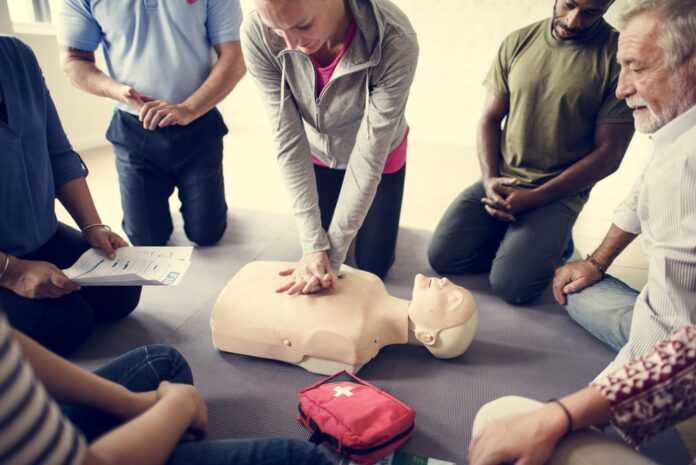Cardiopulmonary resuscitation or CPR is a skill that many professionals like nurses, firefighters and professional trainers absolutely must have. It is a skill that means they can save someone’s life. Probably all of us admire the professionals having this ability and are amazed when we see a lifeguard or a policeman applying the steps as they breathe life into the ones in need, either on screen or in reality. This is one of the reasons why healthcare professionals are often called superheroes, right? The good news is, learning CPR and becoming certified as someone who has this skill is available to almost anyone who wants it. Especially now, when this, like so many other things, can be done online. But why should you do it?
Save a life
This is a pretty obvious first reason, for sure. When someone suffers from cardiac arrest, the biggest chances of survival is that they get CPR from a bystander, because statistics show that for every minute that passes without CPR and defibrillation, the victim’s chances of survival decrease between 7 percent and 10 percent. According to the same statistics of the American Heart Association, only 32 percent of bystanders actually know what to do. As additional motivation, you should know that cardiac arrest most often happens to people in their homes, so their loved ones are the ones who should know how to help them. These reasons suffice to make it a mandatory skill to learn in schools, but before that happens, it is good to know that one can choose to learn CPR.
There are not enough people who know CPR
Many people save lives for a living. We already mentioned some of them at the beginning of this article. However, since accidents can happen anywhere and anytime, it is impossible for them to be always near and on time to administer help. This is why CPR is something as many people as possible should know. So wherever there is an emergency, by the time the professionals arrive, a student, a parent, a child even, or any other bystander will be able to help the cardiac arrest victim and keep them alive.
It is very easy to learn
You’ve probably seen CPR steps at least on TV a couple of times in your life. Even if it seems complicated, you can take our word for it that it is indeed a very simple thing to do. Before you actually start attending a class, you can read articles and watch videos about it on YouTube, which will show you how simple it can be. Usually, CPR courses take around four hours of your time. That is not a lot of your time for such a valuable skill. And, like so many things today, a CPR course can be taken online, saving you some valuable commute time, and making it much easier to fit it into your schedule.
Add a valuable skill to your resume
Even if you are not a teacher or a nanny and your job does not require you to have this skill, you might still want to learn it because it will help your resume stand out to your future employer. Many life-threatening accidents can happen at a workplace and companies will appreciate adding a member to their staff who they know will be able to react in these critical situations.
Things to keep in mind when choosing a CPR course
If you agree with us that there are more than enough reasons to get yourself CPR certified, here are a couple of things to keep in mind when choosing a place to do it.
- Like we mentioned before, the usual length of a CPR course is up to 4 hours. If this does not work for you, there are courses that can be done in more than one sitting. If you cannot find a class near you, you can consider an online class that will bring the course to your home, rather than you having to go somewhere.
- Consider the accreditation of the course you are choosing but also consider how important it is for you. If you are learning CPR just because you want to be able to help, accreditation might not be so important to you. You should still check the reviews and learn about the previous experiences of students, to make sure you will acquire the skills necessary. On the other hand, if you also want the CPR to be an addition to your CV, make sure you choose a place that is accepted and accredited in a company you might be applying for a job. And be particularly careful with accreditation if you are, in fact, a healthcare worker, because those are the most specific ones.
- Don’t forget to check what the requirement is in terms of retaking the CPR course. Make sure you get familiar with the possibility of being updated and getting the news about changes and improvement in life-changing procedures.
The takeaway
Many lives were saved because there was a person nearby that knows CPR. Taking that into consideration, we believe it is safe to say the world would benefit significantly if we could all learn it. That might be too much to ask, but if you are considering acquiring this skill, you can see the very high number of pros and hardly any cons.
Find a Home-Based Business to Start-Up >>> Hundreds of Business Listings.

















































